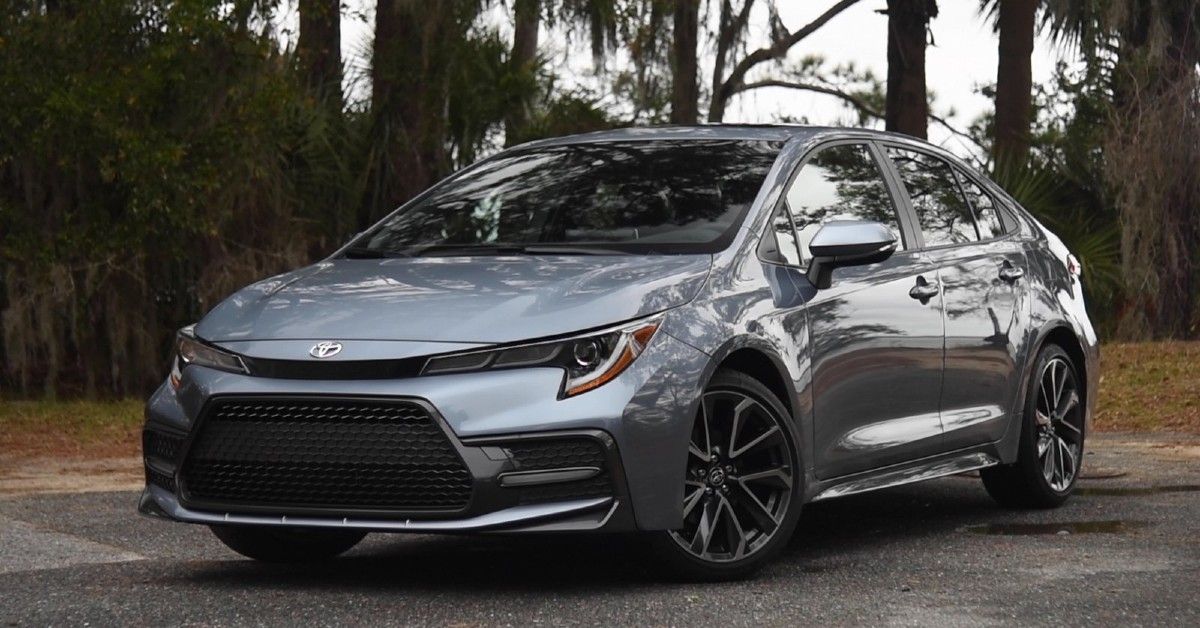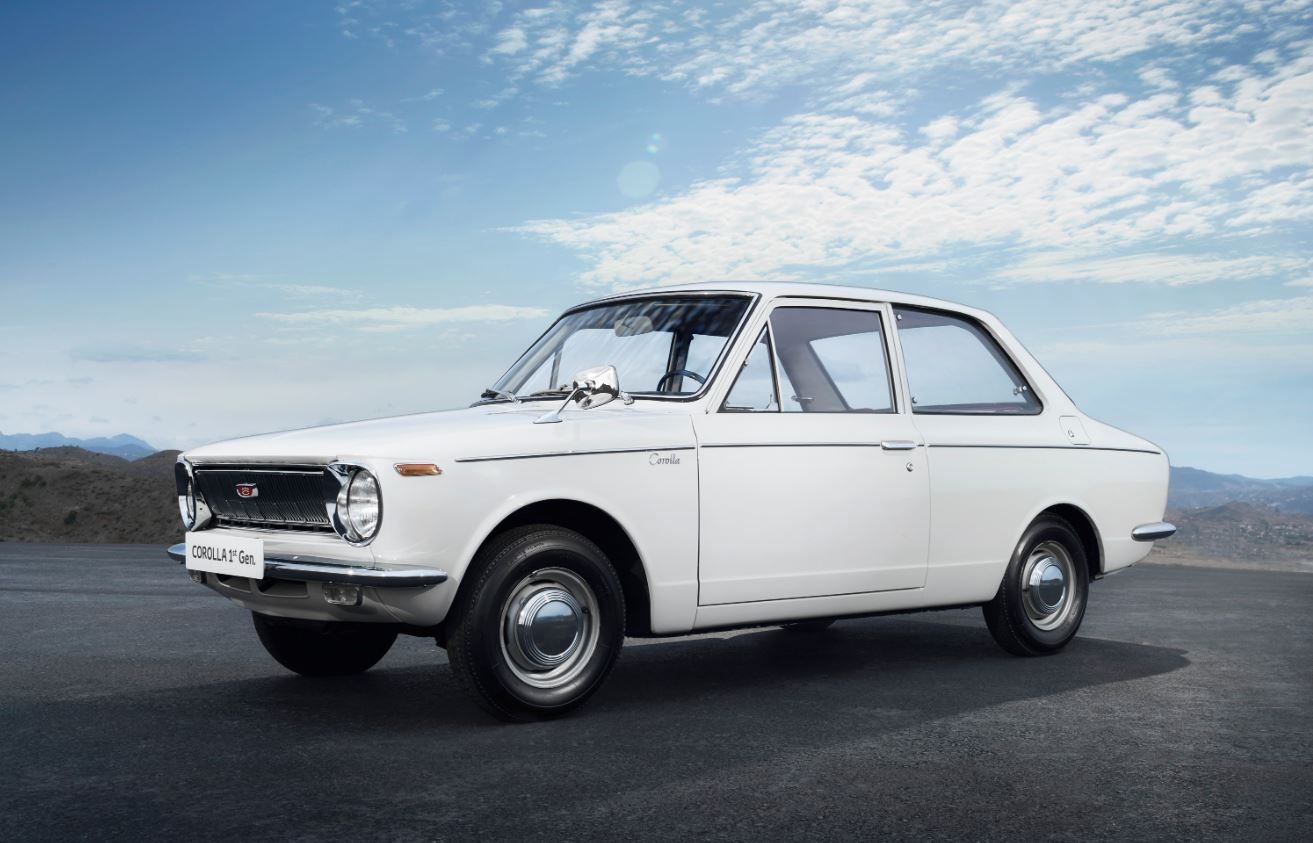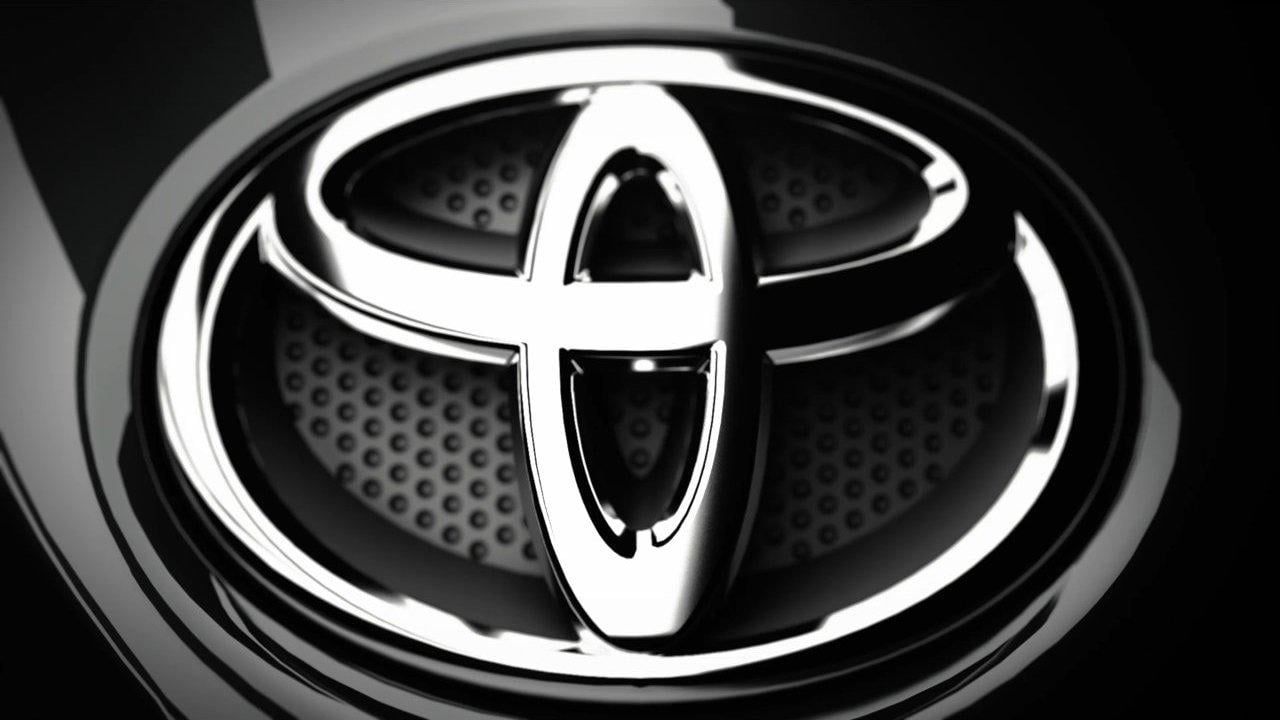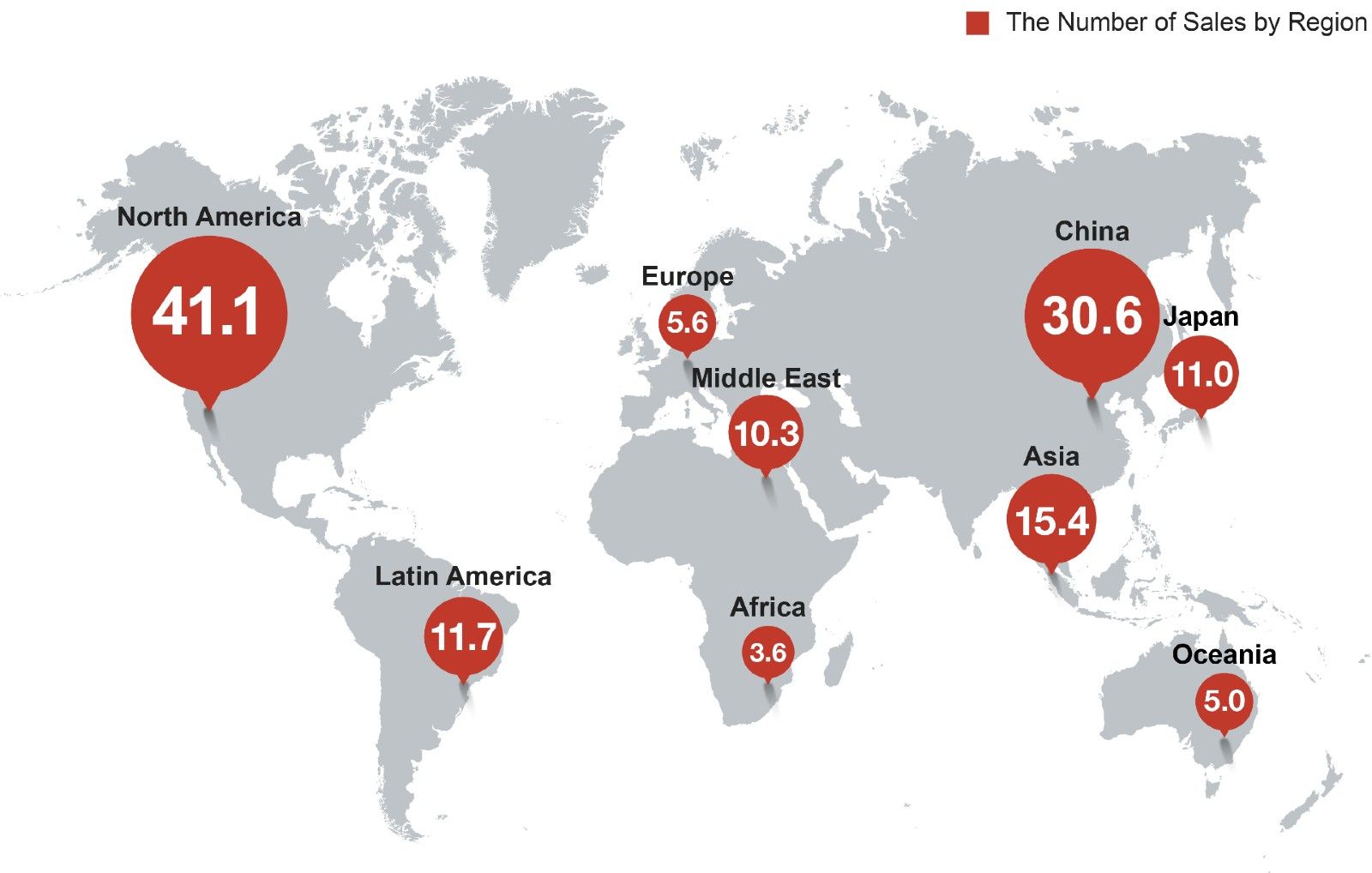The first Toyota Corolla rolled off of the assembly line in 1966. And by 1974, it had already secured a spot in the hearts of the masses to become the best-selling car in the world. When Toyota announced the 40 millionth Corolla, it was believed that the dealerships flew out cars so quickly that the automaker wasn't sure who had the milestone car or at what location it was sold. Today, the number has risen to more than 43 million worldwide.
In November 1966, Toyota opened a new plant in Takaoka, Aichi Prefecture, dedicated solely for the production of Corolla. Two years later, with an emphasis on providing region-specific vehicles, Toyota began production in Australia and Malaysia as well. From 1965 to 1968, Toyota more than doubled its total annual production from 480,000 to 1.1 million vehicles, which was a testament to the Corolla's significant contribution to the growth of the company.
The Japanese automaker has given the world an array of reliable automobiles over the years. However, Corolla happens to sit on top of the list with its raging sales, and here is a glimpse at what makes it the best-selling car across the globe.
The Beginning Of History
In November of 1966, Toyota launched a new model in the Japanese market, slotting in below the popular Corona. Named 'Corolla', it was Toyota's affordable response to the 'motorization boom' that saw Japanese families abandoning cities for the suburbs following a migration that took place in the 1950s.
The Corolla arrived across the sea in 1968. Though a step up from Toyota's first U.S. automobile, the suboptimal-for-American-roads Toyopet Crown, the Corolla was hardly an overnight sensation, and early reviews were kind only to the car's $1,660 price.
With 60 HP on tap from its 1.1-liter four-cylinder engine, the Corolla took 17 seconds to reach 60 mph and ran the quarter-mile in 20.5 seconds at 64 MPH, which, in fairness, were competitive figures. However, in quite a few aspects, Corolla received below-average ratings from critics and the media. Five decades later, in its 11th generation, the Toyota Corolla surpassed the Volkswagen Beetle as the most popular nameplate in the world. In 2016, the Corolla celebrated 50 years of production.
Toyota's Unmatched Brand Reliability And Trust
When consumers purchase a Toyota, the brand reliability of the Japanese auto giant has a huge role to play in it. Toyota attributes the reliability of its first model and its other models to the nature of its Japanese business model.
The employees at Toyota often work at the company for the entirety of their careers because of the work culture. This inevitably leads to engineers who know every aspect of their job, and undoubtedly it makes Corolla one of the most reliable vehicles ever.
Also, owing to Corolla's superior build quality, it demands lesser costs that go into the maintenance of mechanical issues, saving more of the buyer's money. Masses find the vehicle worth paying for, considering its outstanding quality, which, if regularly maintained, can last for a six-figure mile number.
The Heart-Winning New Generations And Record-Breaking Sales
The Toyota Corolla is about as bulletproof and time-tested as it gets when it comes to a basic vehicle. However, there is nothing basic about Corolla's rich 50-year history. There have been 11 generations of the Toyota Corolla, all of which have been quite popular, with a 12th generation on its way. Each generation of Corolla shares the same concept that has kept Toyota on top - reliability, affordability, and efficiency. Moreover, each generation includes different models ranging from a 2-door coupe to 5-door wagons and vans. In its run, the Toyota Corolla has seen the daylight in several variations and has worn the tag of a few alternate names as well, depending on the market.
These are just some of the popular alternate names the Toyota Corolla has gone by - Corolla Allex, Corolla Blade, Corolla Ceres, Corolla Fielder, Corolla Levin, Corolla Matrix, and Corolla Rukus. The first model came in two body styles - a 2/4 door sedan and a 2-door station wagon. The engine capacity for future models ranged from 1.2-liter to 1.6-liter, depending on the trim level. While the sales were underwhelming in Japan during these times, it was quite the opposite overseas.
In the sixth generation Corolla, a more contemporary and stylish design was incorporated. This Corolla had an authentic 80s look and a feel to it, and it is not uncommon to see this gen Corolla on the road still today. By then, all Corollas were front-wheel-drive, as rear-wheel-drive models were no longer being produced as of 1987. Four different body types were available for this Corolla, which featured engines ranging from a 1.3-liter to a Supercharged 1.8-liter diesel engine. The eighth-generation was the last generation of Corolla to have an equivalent Sprinter model. One of Toyota's main focuses when engineering the eighth generation was to save energy and resources by reducing the vehicle's weight.
Forty years had passed when the 10th generation Corolla was released, and the new model took a more global approach than ever before. To satisfy the needs of markets like Europe, North America, and Asia, Toyota focused on technology, performance, cabin space, and user-friendliness. A newly-designed interior, front grille, and bumpers were just a few changes the 10th generation saw from a design perspective.
When the first Corolla rolled off the production line, many basic safety features were still optional. Later, to meet the needs of families, Toyota decided to include many of these features as standard. Toyota's commitment to pursue higher and higher levels of quality and continue adding new features to the reliable yet budget-friendly car. This has helped masses around the world continue to choose Corolla over any other nameplate.
Since its inception in 1966, Toyota has sold over 43 million units worldwide in over 150 different countries, making it the most popular nameplate of all time. In July 2013, the Toyota Corolla reached the mark of 40 million in sales, something no other automaker has accomplished yet. The history of the ever-evolving Corolla is emblematic of Toyota's efforts to fulfill its customer's needs, which has aided in making it the best-selling automobile of all time.




